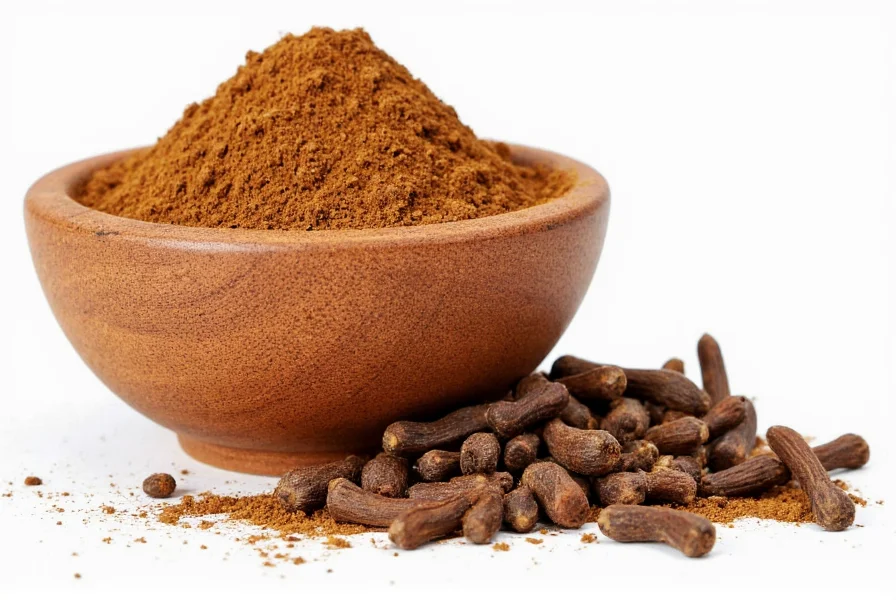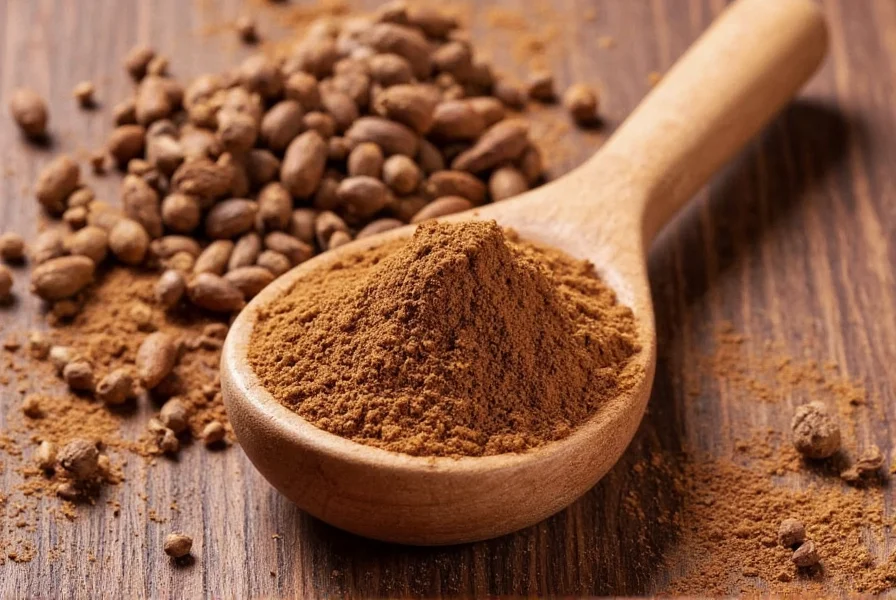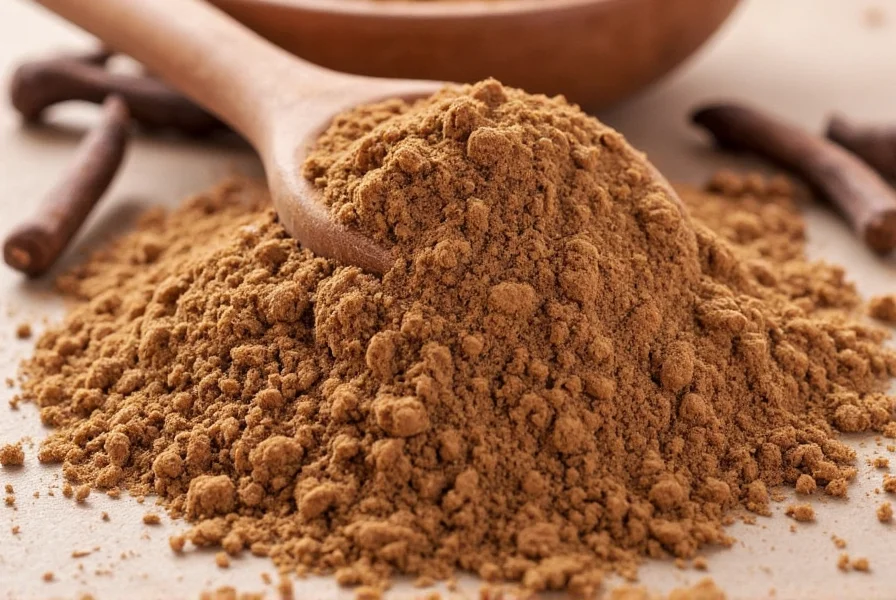Understanding Clove Powder: Nature's Potent Spice
Clove powder represents one of the most versatile ground spices in global cuisine and traditional practices. Unlike whole cloves that require longer infusion time, the powdered form delivers immediate flavor impact and easier incorporation into recipes. This transformation from whole bud to fine powder significantly increases surface area, intensifying both aromatic compounds and potential health benefits.
What Exactly Is Clove Powder?
Clove powder originates from the dried flower buds of the Syzygium aromaticum evergreen tree, native to Indonesia's Maluku Islands. Harvested when pink but尚未 fully open, these buds undergo sun-drying until they turn dark brown and brittle. The drying process concentrates their essential oils, particularly eugenol (comprising 70-90% of clove's volatile oil), which gives cloves their characteristic warm, spicy aroma and numbing quality.
When grinding cloves into powder, the cellular structure breaks down, releasing more essential oils and creating a more potent spice. This increased potency means you'll need less powder than whole cloves in recipes—a critical consideration for home cooks exploring how to use clove powder in cooking without overwhelming dishes.
| Characteristic | Whole Cloves | Clove Powder |
|---|---|---|
| Shelf Life | 2-3 years | 6-12 months |
| Flavor Intensity | Milder, gradual release | Stronger, immediate impact |
| Culinary Best Uses | Stews, braises, pickling | Rubbed meats, baked goods, spice blends |
| Conversion Ratio | 1 clove | ⅛ teaspoon powder |
Culinary Applications and Measurement Guide
Chefs worldwide value clove powder for its ability to distribute evenly throughout dishes. When considering clove powder vs whole cloves conversion, remember that 1 whole clove equals approximately ⅛ teaspoon of powder. This ratio proves essential when adapting traditional recipes that specify whole cloves.
For baking applications like gingerbread, pumpkin pie, or spiced cakes, clove powder integrates seamlessly with other ground spices. In savory applications, it enhances curry powders, garam masala, and meat rubs. Middle Eastern cuisine incorporates it into baharat blends, while European traditions use it in mulled wine and cider preparations.
Proper storage maintains quality—keep clove powder in an airtight container away from light and heat. Unlike whole cloves that retain potency for 2-3 years, ground cloves lose their volatile oils more quickly, with optimal flavor lasting 6-12 months. This shorter clove powder shelf life explains why many chefs prefer grinding cloves fresh for critical applications.

Health Considerations and Traditional Uses
Scientific research supports several traditional uses of clove powder, particularly its dental applications. The eugenol content provides natural analgesic and antiseptic properties, explaining why many cultures have used clove powder for clove powder for toothache relief. A 2016 study published in the Journal of Indian Society of Pedodontics and Preventive Dentistry confirmed clove oil's effectiveness comparable to benzocaine for temporary tooth pain relief.
Additional research suggests potential benefits including:
- Antioxidant properties that may combat oxidative stress
- Anti-inflammatory effects that could support joint health
- Potential blood sugar regulation support
- Natural antimicrobial activity against certain pathogens
However, these potential benefits shouldn't replace professional medical advice. Consuming large quantities of clove powder may cause mouth irritation, digestive upset, or interact with blood-thinning medications due to its eugenol content. Always consult healthcare providers before using clove powder therapeutically.
Creating Your Own Clove Powder
For superior flavor, consider making clove powder at home. The process requires minimal equipment:
- Select high-quality whole cloves with strong aroma
- Dry thoroughly if not already brittle (optional oven drying at 170°F for 10 minutes)
- Use a dedicated spice grinder or clean coffee grinder
- Grind in small batches until fine powder forms
- Sift to remove any coarse particles
- Store immediately in airtight container
Homemade clove powder typically offers more vibrant flavor than commercial varieties, as it hasn't undergone extended storage. This freshness proves particularly valuable in delicate applications where spice quality significantly impacts final results.

Substitution Strategies and Alternatives
When you need clove powder substitutes, consider these options based on your recipe:
- Allspice: Use ¾ teaspoon allspice for every 1 teaspoon clove powder (best for baking)
- Nutmeg: Use ½ teaspoon nutmeg for every 1 teaspoon clove powder (milder alternative)
- Cinnamon: Use 1½ teaspoons cinnamon for every 1 teaspoon clove powder (softer flavor profile)
- Apple pie spice: Use equal amounts (contains clove among other spices)
Remember that no substitute perfectly replicates clove's unique flavor profile. In traditional medicine applications, substitutes may not provide equivalent therapeutic effects. When precision matters, seek the actual ingredient rather than relying on alternatives.
Frequently Asked Questions
Can I substitute clove powder for whole cloves in recipes?
Yes, use ⅛ teaspoon of clove powder for each whole clove specified in a recipe. Remember that powder delivers more immediate flavor impact, so adjust carefully to avoid overpowering your dish. For long-cooking dishes, whole cloves often provide more balanced flavor development.
How should I store clove powder to maintain freshness?
Store clove powder in an airtight container away from light, heat, and moisture. A dark cupboard works well, but for maximum shelf life (up to 12 months), consider refrigeration in a moisture-proof container. Avoid storing near stove tops or windows where temperature fluctuates.
Is clove powder safe for daily consumption?
In culinary amounts (⅛-¼ teaspoon daily), clove powder is generally safe for most adults. However, excessive consumption (more than 1 teaspoon daily) may cause mouth irritation, digestive issues, or interact with blood-thinning medications. Those with bleeding disorders or scheduled surgery should consult healthcare providers before regular use.
What gives clove powder its distinctive numbing sensation?
The compound eugenol (comprising 70-90% of clove's essential oil) creates clove powder's characteristic warming, slightly numbing sensation. This same compound provides natural analgesic properties that have made clove a traditional remedy for toothaches and minor oral discomfort when applied topically in appropriate concentrations.
How does clove powder compare nutritionally to whole cloves?
Nutritionally, clove powder and whole cloves contain identical compounds, but powder offers more immediate bioavailability due to increased surface area. Both provide manganese, vitamin K, and dietary fiber. However, ground cloves lose volatile compounds more quickly, so fresh powder delivers slightly higher concentrations of active compounds than older pre-ground products.











 浙公网安备
33010002000092号
浙公网安备
33010002000092号 浙B2-20120091-4
浙B2-20120091-4